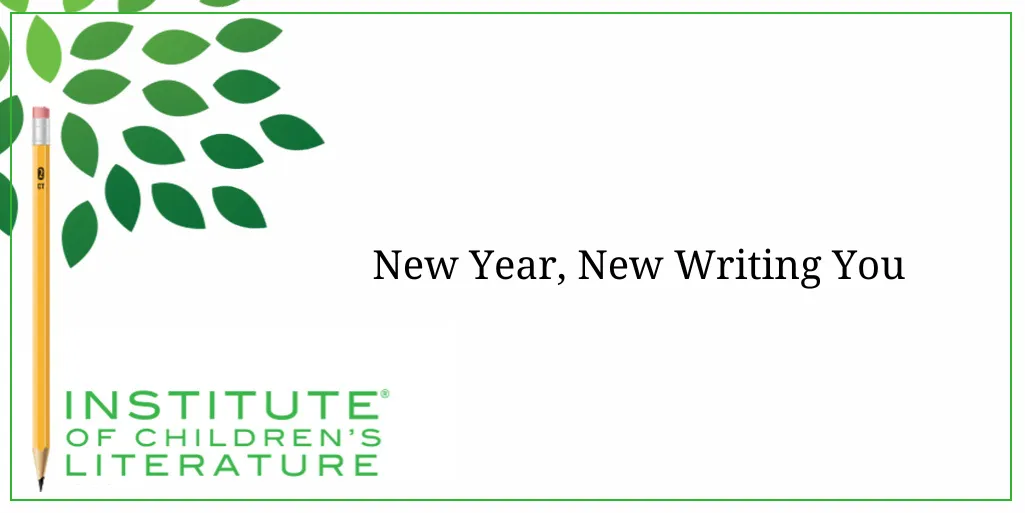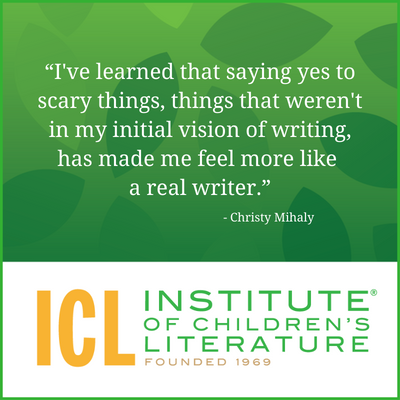
5 Ways Writers Can Prep for 2025 Goal Setting
Before we roll on to the new writing year, let’s harness our optimism for the blank slate before us and prepare for our 2025 Goal Setting just for writers.

We teach our students how to write and get published!
View our Course Catalog >
Welcome to the new year. I am always reinvigorated when the new year comes. It’s a new chance to accomplish things (especially in terms of writing), and an opportunity to close the door on past efforts that didn’t pay off so well. I find the new year a good time for letting go, and a good time for fresh starts. For me, it’s all about change, and I enter each new year at least slightly changed from the person who stepped into this position last year. I’m always growing, always changing, and so the new year is for the new me. And it can be that way for you as well. It’s all a matter of choices and perspective.
One place I can still struggle is stepping outside my comfort zone, but whenever I have, the results have nearly always been worth the struggle to do it. Stepping outside my comfort zone has allowed me to say yes to opportunities that I didn’t feel altogether confident about. Though I’ve been in this profession for decades, my confidence most always lags behind my capability.

This new attitude of boundary-pushing is a kind of choice, a decision toward positivity about your own capabilities. It’s easy to be negative. To call ourselves unready. To be hypercritical of where we are in our skills and our success. Part of that comes from comparing ourselves to others. The problem with that is it’s never a fully informed comparison. We can’t know where other writers really are in their careers. We don’t know their challenges and their problems. We create false impressions of successful writers and then hold ourselves up to that standard and get frustrated and depressed. None of that leads to positive productivity.
That doesn’t mean comparison has no value. I often compare where I am to where I used to be so I can reflect both on what I have learned and the direction my change and growth suggest for me. It helps me see where I need to go next if I look at where I went before. Sometimes I discover I’ve forgotten things I did in the past that worked out well, and I might want to revisit those things and try something else in that genre, format, or age group. For instance, I’ve sold a fair bit of poetry even though it’s not something I’m entirely comfortable with, and thus I haven’t written any in the last year. With a new attitude, I might choose to nudge my poetry skills, an area outside my comfort zone, to see where I could take that in the new year.
It’s all about seeing yourself positively when you look at your writing and your ability. Choose to call yourself capable and creative. And then push forward even when the journey is a little uncomfortable. There are so many paths and options in a writer’s journey. Your path may be winding and even weird, but it’s amazing too. It’s all in your attitude.
I’m big on plans for the new year, but ultimately, I only have one double-pronged goal: I will grow and I will change. Change can be good, or it can be bad, but when it’s married with growth, it’s going to be a good change. Stagnation is the enemy of all creative efforts, so change is mandatory if you want success as a writer.
That doesn’t mean I’m going to pursue change for its own sake. I won’t, for instance, abandon writing cozy mystery novels simply because I’ve done a lot of them and so I should change. The fact is that I still love writing them. And I’m still learning and growing in the genre. That’s not where I need change. But one area I feel a yearning to try is middle grade horror. I adored the genre as a child and I read a lot of it. But it’s new and if I’m going to grow in that area, I’ll need to get more skills, more knowledge, and apply some effort. I’ll need to read RECENT middle grade horror (which I tend to do anyway when I can) because the books that I loved as a kid will be different from the books being published today. I’m going to read books on the subject. And I’m going to look for workshops on it. All of these choices will help me grow and succeed in this new goal.
So, look at your own writing life. How does it need to change? If your only answer is “I need to get published,” then you need to keep looking deeper. You can’t force publication, but you can put yourself on the path and create opportunities for that kind of success with writing courses, workshops, and books on writing craft. Your focus needs to be on specific growth and change you can make that will then increase your odds of getting published.
If you’re at all like me, you already have some unhelpful habits connected to your writing. It might be avoidance of certain areas. It may be procrastination of the necessary chores connected with writing. It may be making excuses. There are many unhelpful habits that are common in the life of most writers. But this is a new year and a chance to form new habits. So what kind of helpful, useful habit will you form?
Over a year ago, I recognized that I was having serious trouble sleeping. and that was leaking over into poor productivity as a writer. I tried a variety of winding down behaviors: Chamomile tea (sorry Chamomile lovers, but, yuck), listening to music, avoiding screens for the last hour of wakefulness, and developing steady bedtime habits. None of them were particularly useful, but there was one more suggested habit that I struggled to add to my day: exercise.
I’d intend to exercise. I’d want to exercise. But the day would pass and I spent most of it writing slowly and groggily, and at night I’d be wide awake when I needed to be asleep. I finally had to add the habit as the first thing I did after I got up. Now, I ride my exercise bike before I change my clothes, before I have my tea, and before I talk to another living soul. And that made the habit work. My new exercise habit improved everything else in my life, including my energy and creativity for writing.
This year, I already have the exercise habit, but I do have a horrific problem with organization. I’m so impressed by people who know exactly how long submissions have been out. Or when they expect to be paid. Or when they expect to hear from an editor. My organizational habits are terrible. Part of that is a side effect of how my brain is wired, but some of it is simply that I avoid doing the work to develop and keep the habit of organization going.
The results of poor organization can be very bad. I’ve learned how to keep meticulous records about when deadlines are coming up – thus, I know I can be organized. I simply don’t. So, organization is the habit I want to cultivate for the new year. And I plan to build on the fact that I already have methods of organization that I use for deadlines, I simply need to look at ways to expand the same things into submissions, queries, payments, and the like.
I find the key to a new habit is building on my present methods, and looking for ways to adapt them to the new things I need to introduce. And I need to do it all without expecting myself to suddenly become someone else. I’m not going to start remembering things any more than I’m going to start being able to do math in my head— I’m not wired for it. But I am wired to write. And when I used that wiring, I developed a system of lists and written calendar entries to help me stay on top of deadlines. I can also use it to keep me on top of the other organizational bits and bobs.
So how about you? What new habit do you need to add? How can the person you are and the other habits you have help you in introducing a new habit that will enable you to build success this year? Attitude, goals, and habits, they all begin with you. Know yourself.
Accept who you are. And always be reaching for growth and change, and this new year will take you somewhere amazing. I’m sure of it.
With over 100 books in publication, Jan Fields writes both chapter books for children and mystery novels for adults. She’s also known for a variety of experiences teaching writing, from one session SCBWI events to lengthier Highlights Foundation workshops to these blog posts for the Institute of Children’s Literature. As a former ICL instructor, Jan enjoys equipping writers for success in whatever way she can.

Before we roll on to the new writing year, let’s harness our optimism for the blank slate before us and prepare for our 2025 Goal Setting just for writers.

Writers can be thin-skinned when it comes to getting feedback on their work. Let’s look at 4 ways to positively deal with constructive criticism!

Rejection is part of the territory when it comes to being a writer. Today we offer reflection for writers to help redirect your efforts after a rejection.
1000 N. West Street #1200, Wilmington, DE 19801
© 2024 Direct Learning Systems, Inc. All rights reserved.
1000 N. West Street #1200, Wilmington, DE 19801
© 2024 Direct Learning Systems, Inc. All rights reserved.
1000 N. West Street #1200, Wilmington, DE 19801
© 2024 Direct Learning Systems, Inc. All rights reserved.
1000 N. West Street #1200, Wilmington, DE 19801
© 2024 Direct Learning Systems, Inc. All rights reserved.

1000 N. West Street #1200, Wilmington, DE 19801
© 2025 Direct Learning Systems, Inc. All rights reserved.

1000 N. West Street #1200, Wilmington, DE 19801
©2025 Direct Learning Systems, Inc. All rights reserved. Privacy Policy.
6 Comments
Great post, Jan! You made me think, as always. I appreciate your wisdom as well as the window into how you deal with your own writing weaknesses. Hope you learn and grow a lot this year! 🙂
Thank you, Sara — and thanks for dropping by. I hope we all have joy, growth and success this year.